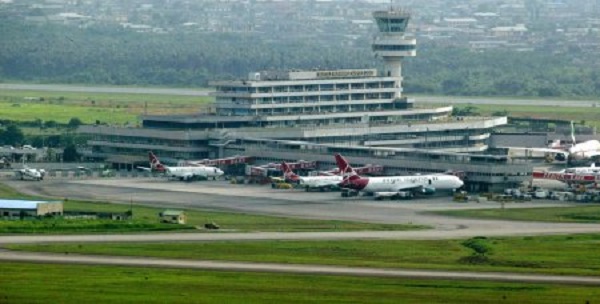Managing Nigerian Aviation Sector Amid Global Aeropolitics
 Local carriers may begin to heave a sigh of relief as the Federal Government embraces reciprocity in relating with foreign airlines plying Nigerian routes. But it is still a long way to go without a comprehensive review of commercial agreements that skewed the market in favour of international carriers.
Local carriers may begin to heave a sigh of relief as the Federal Government embraces reciprocity in relating with foreign airlines plying Nigerian routes. But it is still a long way to go without a comprehensive review of commercial agreements that skewed the market in favour of international carriers.
Call it a child of necessity and you would not be wrong. The Federal Government recently hinted on a tit-for-tat work plan for the aviation sector, to pay back countries that were lately ‘unfriendly’ with Nigerian carriers. It was the first time of admitting that something is wrong with the air trade relations.
Not many stakeholders expected the bold reaction too, given the years of turning a blind eye to alleged rip-offs of the Nigerian market by foreign carriers. Although details of execution are still unknown, there are speculations that Nigeria may deny entry to some major national and flag carriers.
Commendations have been pouring in from stakeholders, who are quite pleased with the pay back drive, at least in the interest of the battered local flag carriers that have for too long gone unprotected. They, however, sought a well tidy and comprehensive and sustainable approach that is without creating rankles in the market and revenue earnings.
Indeed, it has always been a struggle getting a proper recognition for Nigerian representatives abroad. Most recently, the evacuation of stranded Nigerians from the United Kingdom (UK), by indigenous carrier, hit a brick wall as the UK Government denied Air Peace aircraft a landing permit.
The designated aircraft was initially scheduled to depart Heathrow Airport, London, with about 584 passengers, until the UK’s withdrawal of diplomatic landing clearance, as confirmed by the Ministry of Foreign Affairs.
While Air Peace airline had evacuated over 300 Nigerians from the UK about a fortnight earlier, the reason for the sudden denial remains unclear.
Chairman of the airline, Allen Onyema, explained that all arrangements were made, including payments, “only for the UK authorities to withdraw landing rights close to departure. That was despite strong representations by the Nigerian Government, including pointing out the hardship that would be caused to hundreds of Nigerian evacuees.”
Similar intrigue unfurled in May, when the Canadian Government also stalled the evacuation of 200 Nigerians over alleged conflict of interest in the choice of the operating carrier.
While the Nigerian Government designated Air Peace for the special operation, the Canadian Government had a preference for another airline, though at more expensive fares for the travelers. Air Peace was denied the landing right permits, hence, had to make refunds to travelers.
Recall that the Bilateral Air Service Agreement (BASA) provides for reciprocity by the number of flights and destinations. Not for lack of trying to reciprocate though. It has always been a tale of woes for local airlines on most competitive international markets without the government protection that often sustains national carriers.
An official of Air Peace explained that they had done many international flights, including landing in Canada and the UK successfully.
“We have IATA Operational Safety Audit (IOSA) certification, and we are a member of IATA. We have also evacuated Nigerians from South Africa during the xenophobic attack of Africans there. We have no reason not to be welcome in any country,” the official said.
But the days of reckoning may be here. Already, foreign airlines jostling for the Nigerian routes have begun pre-qualification hurdles ahead of the September 5 resumption date. The hurdle is not unconnected with the decision to allow only airlines whose country had been fair to Nigerian flag carriers during the evacuation exercise.
To that effect, all foreign airlines vying for the lucrative Nigerian routes had been mandated to submit fresh applications for approval by the Ministry of Aviation and more than 15 airlines submitted applications.
The Aviation Minister, Hadi Sirika, had earlier said that the policy of reciprocity was informed by the ban that some countries placed on carriers from Nigeria, adding that the decision was taken in the interest of the citizenry.






